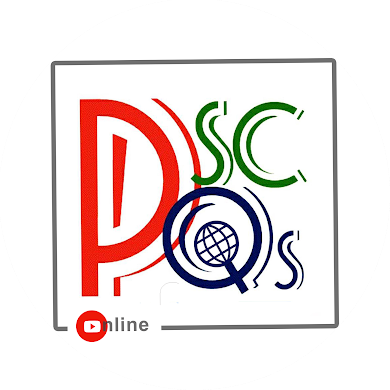Following are the questions and answers to the Junior Health Inspector Grade II in Health Service Department Examination conduct by Kerala Public Service Commission on 30.12.2015. We expect this will help the candidates who are preparing for the Junior Health Inspector and other degree level exams. The purpose of this section is just to support the candidates who prepare for Kerala PSC and other competitive exams. You can always refer this website from your mobile phone on the go or from your home PC.
Junior Health Inspector Grade II in Health Service Department
Kerala PSC Exam held on : 30-052015 | Questions : 41-60
41] All are cause-specific categorization of adverse events following immunization (AEFI) except
[a] Immunization anxiety related reaction
[b] Immunization error related reaction
[c] Unknown reaction
[d] Vaccine product related reaction
42] All are true about mass drug administration in filariasis except
[a] Given to all above 2 years of age except pregnant and seriously ill patients
[b] Indicated in highly endemic areas
[c] Given only if the people have microfilaremia or disease manifestations
[d] At least 80% coverage has to be achieved
43] Which of these is a live vaccine?
[a] Pentavalent vaccine
[b] Measles vaccine
[c] Tetanus toxoid
[d] Japanese encephalitis vaccine
44] A severely malnourished child 6 months to 72 months of age gets the following calories and proteins per day through ICDS programme
[a] 300 cals, 10-12 grams protein
[b] 500 cals, 12-15 grams protein
[c] 800 cals, 20-25 grams protein
[d] 1000 cals, 25-30 grams protein
45] All the following are vaccine preventable diseases except
[a] Hepatitis B
[b] Tuberculosis
[c] Polio
[d] Kala azar
46] Residual sprays used for the control of houseflies in areas of DDT resistance are all except
[a] Methoxychlor, chlordane
[b] Fenthion, diazinon
[c] Dimethoate, malathion
[d] Ronnel, malathion
47] All FRUs/CHCs should have
[a] New born care corner
[b] Special new born care unit and new born stabilization unit
[c] New born stabilization unit
[d] New born care corner and new born stabilization unit
48] The membrane processes in water treatment are all except
[a] Reverse osmosis
[b] Ultra filtration
[c] Super filtration
[d] Micro filtration
49] A disease that is transmitted through contact is called
[a] infectious disease
[b] contagious disease
[c] communicable disease
[d] endemic disease
50] What is the route of administration of BCG vaccine?
[a] Intravenous
[b] Subcutaneous
[c] Intradermal
[d] Intramuscular
51] Under the National Vitamin A prophylaxis programme, Vitamin A prophylaxis is given to children
[a] every 6 months upto the age of 5 years
[b] every 6 months upto the age of 3 years
[c] only at 9 months of age
[d] At 9 months and at 18 months of age
52] Amount of available chlorine in freshly prepared bleaching powder is
[a] 33%
[b] 40%
[c] 25%
[d] 53%
53] All are warning signs of cancer except
[a] A lump or hard area in the breast
[b] Unexplained weight loss
[c] A persistent change in digestive and bowel habits
[d] A swelling or a sore that gets better on treatment
54] Sanitation barrier can best be provided by
[a] Sanitary latrine
[b] Disposal pit
[c] Sanitary latrine and disposal pit
[d] Sanitary well
55] The new initiatives launched under the National Health Mission in 2013-15 are all except
[a] Rashtriya Bal Swasthya Karyakram
[b] Kishori Shakthi Yojana
[c] Weekly Iron and folic acid supplementation programme
[d] Rashtriya Kishore Swasthya Karyakram
56] The two stages involved in the purification of sewage in a septic tank are as follows
[a] Aerobic digestion in the septic tank, anaerobic digestion in the subsoil
[b] Aerobic digestion both in the septic tank and in the subsoil
[c] Anaerobic digestion both in the septic tank and in the subsoil
[d] Anaerobic digestion in the septic tank, aerobic digestion in the subsoil
57] Family Planning Programme was made target free in
[a] 1996
[b] 1998
[c] 1990
[d] 1999
58] Which of the following does not come under the purview of National Vector borne disease control programme?
[a] Filariasis
[b] Leishmaniasis
[c] Japanese encephalitis
[d] Hepatitis A
59] Schemes implemented at the ICDS level are all except
[a] SABLA-Rajiv Gandhi scheme for empowerment of adolescent girls
[b] Kishori Shakthi Yojana
[c] Indira Gandhi Matrutva Sahyog Yojana
[d] Janani Suraksha Yojana
60] Which of the following is not a mode of transmission of HIV virus?
[a] Insect bite
[b] Blood contact
[c] Sexual transmission
[d] Mother to child transmission
Tag: 2015-Junior Health Inspector Grade II in Health Service Department Kerala PSC Previous Year Questions | 2015-Junior Health Inspector Grade II in Health Service Department Previous Question Bank | 2015-Junior Health Inspector Grade II in Health Service Department Fully Solved Question Paper 2015 | 2015-Junior Health Inspector Grade II in Health Service Department exam preparation | 2015-Junior Health Inspector Grade II in Health Service Department Model Questions Paper | 2015-Junior Health Inspector Grade II in Health Service Department Kerala PSC repeated Questions | 2015-Junior Health Inspector Grade II in Health Service Department Kerala PSC frequently asked questions | How to prepare 2015-Junior Health Inspector Grade II in Health Service Department exam | A to Z questions for Kerala PSC 2015-Junior Health Inspector Grade II in Health Service Department exams | Detailed Syllabus based questions for Kerala PSC 2015-Junior Health Inspector Grade II in Health Service Department exams | Previous Question bank for 2015-Junior Health Inspector Grade II in Health Service Department exam | 2015-Junior Health Inspector Grade II in Health Service Department final answer keys | 2015-Junior Health Inspector Grade II in Health Service Department Solved Questions | Study materials for Kerala PSC 2015-Junior Health Inspector Grade II in Health Service Department exams | Recent Kerala PSC Questions for 2015-Junior Health Inspector Grade II in Health Service Department exams | Current Affairs questions for 2015-Junior Health Inspector Grade II in Health Service Department exams





0 Comments